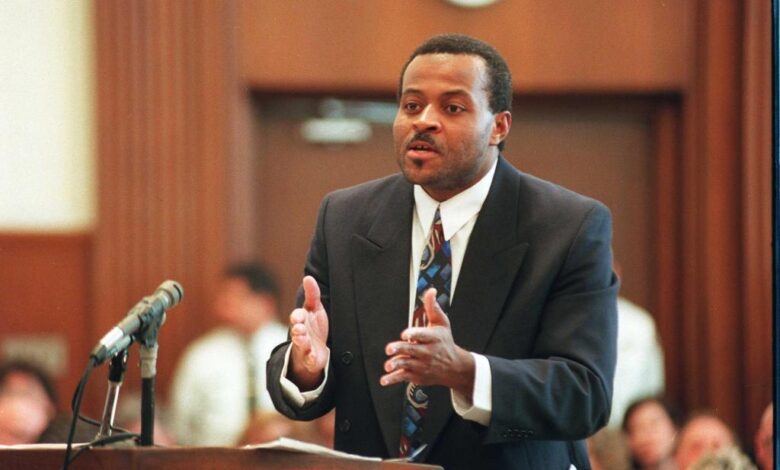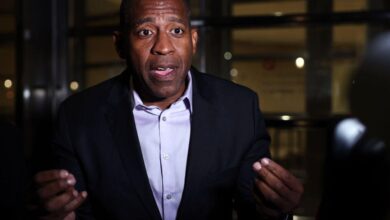Albany’s getting set to sock New York with yet MORE pro-criminal laws

Parents across the country entrust their children to the school bus each morning, believing they will return home safely. Seniors take their dogs for a walk in their neighborhoods, assuming they are secure. These are not mere luxuries but the most basic expectations of a functioning society. However, recent legislation in Albany poses a threat to this safety.
Two controversial bills – the Elder Parole Bill and the Fair and Timely Parole Act – are on the table, aiming to open prison doors and grant parole to convicted murderers and violent criminals. As the Suffolk County district attorney, I cannot stay silent while public safety is compromised for the sake of ideology.
Looking back at recent cases in Long Island, two incidents stand out to illustrate the potential dangers of these bills: the commuter-train massacre carried out by Colin Ferguson and the tragic murder of 8-year-old Thomas Valva.
The Elder Parole bill, which allows inmates over 55 who have served 15 years to apply for parole, may seem compassionate at first glance. However, when we consider individuals like Colin Ferguson, who shot six innocent Long Island Rail Road commuters in a cold-blooded rampage, it raises serious concerns. Do we want to subject the families of victims to parole hearings every two years, forcing them to relive the trauma? Is 15 years enough to erase the blood on Ferguson’s hands?
On the other hand, the Fair and Timely Parole Act shifts the focus of parole decisions to current risk rather than past actions, potentially giving a pass to violent offenders. Take the case of Michael Valva, the ex-NYPD cop convicted of the murder of his son, Thomas. Should his “good behavior” in prison outweigh the heinous crime he committed? This bill seems to prioritize the progress of convicts over the lives of their victims.
While I believe in rehabilitation and second chances, there are acts so depraved that offenders should not have the privilege of freedom. Strong sentencing serves as a deterrent to crime, and erasing that line could have dire consequences.
New York has already suffered from misguided criminal justice reforms like bail reform, leading to spikes in violent crime and a sense of fear in communities. We cannot afford to let these parole bills further endanger public safety.
It is crucial for New Yorkers to voice their opposition to these bills. Contact your state representatives and demand that they prioritize the safety of communities over the interests of criminals. Remember the victims and the duty to uphold public safety.
In conclusion, these parole bills have the potential to retraumatize victims, disrupt peace, and make neighborhoods less safe. It is essential to stand up against these dangerous legislations and ensure that public safety remains a top priority.





